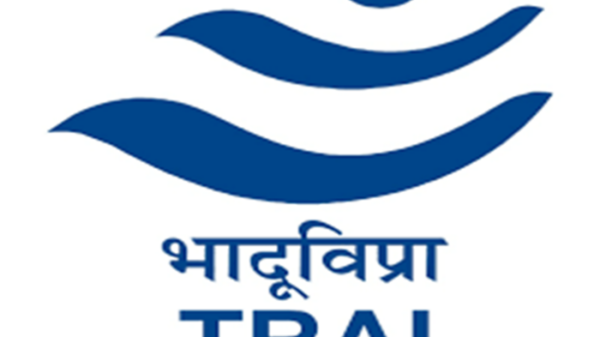
By Vinayak Dalmia and Kavi Sharma
Tomorrow’s Headlines
“Robots March on Washington Demanding Their Civil Rights”
“Terrorist Avatar Bombs Virtual Holiday Destination”
“Nobel Prize in Literature Awarded to IBM’s Deep-Bluedora”
“Genocide Charges Leveled at FARL (Fuerzas Armadas Roboticas de
Liberacion)”
“Nanobots Repair Perforated Heart”
“VTB (Virtual Transaction Bot) Amasses Personal Fortune in Currency
Market”
“UN Debates Prohibition of Self-Replicating AI”
“Serial Stalker Targets Robotic Sex Workers”
– Moral Machine, Chapter 12
Introduction
Should driverless cars value your life over a pedestrians? Should your Fitbit activity be used against you in a court case? Can drones be the new paparazzi? Can one patent a human gene? Scientists are struggling with such dilemmas and its even got outgoing President Obama pensive. As we enter the new machine age, we need a new set of codified morals which become the global norm. The timing is appropriate to put ethics on the same Menu as disruption.
Last month, Carnegie Mellon, announced a new centre studying the Ethics of Artificial Intelligence – computer systems which eventually will become “smarter” than humans. The White house lead a series of discussions on the same culminating in a report for wider public discussion. That’s not all, the leading Tech champions (read Google, Facebook et. al) have also announced a partnership to draw an ethical framework for AI. Stephen Hawking, Elon Musk and others in January 2015 signed an open letter calling for studying the social impact of AI. Musk et al have gone onto bet $1bn on a think-tank called OpenAI .
4th Industrial Revolution
Big names and grand ideals. Most efforts are dis-jointed and without a Pan National signature. Moreover, 4th Industrial Revolution goes beyond the internet and AI. Klaus Schwab, Founder of the World Economic Forum believes this phase will be built around “Cyber-physical systems” with the blurring of the physical, digital and biological. With the risk associated with innovation going down, magic in the shape of drones, 3D Printers, driverless cars and software aided biology comes upon us. New things however bring with it tough questions of morality and ethics. As we embrace this machine age, there is an urgent need to shape a new paradigm of ethics which will govern our social and economic order.
Humans will be compelled to think about new ethical scenarios – for which answers will be needed and laws be made. In some cases the entire moral code may need to be rebooted. Such is the nature of technological breakthroughs. We believe that humanity will soon be on the cusp of re-thinking about Morals – an Ethics 2.0.
Origins of Ethics
Ethics from Religion or Philosophy does not easily fit into the world of technology. From Aristotle to the Ten Commandments give us moral navigation – but its not trivial to establish a set of rules before eventually running into dilemmas. The world of science also has its share of attempts – from Asimov’s Three Laws for Robots to Nick Bostrom’s work on Ethics. However, humans find it hard enough to develop virtues for their own conduct, let alone building relevant virtues for new technologies.
Use Cases
The ethical implications range from the immediate (Can Google or FB influence emotions or the political process with the troves of data?) to the future (the eventual “oh shit” impact of self driving vehicles on truck drivers). Following is a sample of the ethical decisions which will face us (by no means exhaustive) –
– Should Gene Editing be legal to manipulate the human race and create “designer babies”?
– Should the local Police use facial recognition software? Should predictive policing be legal?
– Given its increasing pervasiveness, how do we bring in fairness in algorithm design? What if an Algorithm will eventually decide your job promotion, college admission and whether your partner will marry you? What if AI enabled encryption locks us out from systems?
– Should Nano-technology and regenerative medicine which expands life or cheat death be legal?
– What If Kindle was to be upgraded with face recognition software and biometric sensors, it would know how each sentence influenced your heart rate and blood pressure.?
– How do we decide what driverless cars can decide? How do we decide what Robots can decide? Should we control the rate of adoption of robots so we do not completely wipe out jobs without a proper transition?
– Is it ethical to build robots with emotions? Will there be a need for the robot equivalent of a Bill of Rights? Whose Responsible for the actions of a Military Robot? What about rights of humans to marry robots and of robots to own property.
– Should a highly advanced Cybog be allowed to run for political office?
– Will young blood infusion for reversing ageing lead to blood trafficking of the young?
– What are the long term impact of GM Food?
– Should Apps and games designed to be addictive (and known to release Dopamine) be legal?
Recommendations
Typically in the past free markets have decided the fate of new innovation and with time local governments come in and intervene (Uber is banned in Japan and Operational in India). However in this case such an approach would be disastrous and would lead to disparate outcomes.
We are not in favour of Government getting in the way of innovation, we are calling for a coherent global dialogue around ethics in the 21st century – prodded by the technological developments. The dialogue needs to move beyond academic journals and Op-eds and be reflected in Committees of Governments and International Bodies such as the UN. More than email hacks, this needs to be part of Presidential debates.
So far we have taken a siloed approach – from worldwide banning on human cloning to partial restrictions on GM Foods. Different regions have also taken disparate views and failed to orchestra a unified response – EU’s approach to manage the societal impact of new technologies is markedly different from that of the US. China on the other hand has always taken the long view. Technology is like water – it’ll find its open spaces – thus in an interconnected world local decisions are only effective when enabled by International Consensus.
There is a need for a structured International forum – perhaps within the UN as part of the COMEST or a new Global Ethics Committee specifically to deal with technology issues. Such a forum would agree and fix the new technologies agenda, evaluate each technology and release a blueprint for the code of conduct.
For example, an international governmental body can lay down specific rules such as making it mandatory to release the rules / logic behind certain AI algorithms.
The world of science has some successful examples of international cooperation. The Montreal Protocol of 1987 (to tackle the issue of Ozone depletion) and Asilomar conference of 1975 (to regulate DNA technology) come to mind.
Conclusion
Humanity will be posed with questions it hasn’t had to answer yet. We need to start having the conversation now.
If we do not prepare in advance we face several risks. We risk losing tremendous power to machines. We risk altering the course of humanity without fully understanding the consequences. We risk creating massive inequality between the “techno super-rich” and a large “useless class”
Anyone who has seen even a single episode of the award winning TV series Black Mirror should be worried about the dystopian future that can lie ahead of us – if we dont tackle the hard philosophical and legal questions now.
This is the not the first technology revolution. The concerns are not new. They have been around for over 200 years since the Industrial Revolution. But as Historian Philosopher Youval Harari puts it, its a matter of the boy (who cried wolf) being eventually right.
Traditionally technology progress outpaces the political process – we already missed drafting the moral charter for the internet (and continue to play catch up till this day) – we can not afford to be blind sided with the next frontiers – be it Biotechnology or AI. Our future and that of our children is increasingly being scripted by Engineers and a group of Entrepreneurs – such a group does not always understand the social or political impact of their creation – nor are they answerable to any large group of citizens – therein lies the danger.
The Industrial Revolution gave rise to a new set of morals and narratives – it is time for a new set for the coming Technology storm.
Society is good at adapting to change – from the Steam-engine to the Iphone to markedly increased lifespans. However we need to stay vary of a cumulative destructive (societal) impact of advancing technologies.
As Bill Gates put it “technology is amoral”. It is up to us to decide how to use it and where to draw the line.
*Note – for the more academic minded reader the following provides a rich library of material – https://www.routledge.com/The-Library-of-Essays-on-the-Ethics-of-Emerging-Technologies/book-series/ASHSER-1404
*
 About Vinayak Dalmia
About Vinayak Dalmia
Vinayak is an Entrepreneur and Social Worker. Vinayak also invests / incubates new age companies. He has actively served the GOI in the PMO (on Technology and Innovation) and as Member, Organising Committee of the Commonwealth Games. His social work is in Rajasthan and Delhi. Vinayak regularly will write / comment on Social and policy issues.
About Kavi Sharma

Kavi is the Chief Operating Officer of President Electronics USA. He is also a mentor and investor in the technology startup space. His prior work includes Groupe President Medical, McKinsey & Co and Cisco Systems. Kavi is an alumnus of IIT Delhi (B Tech) and Vanderbilt University (MS, MBA).





























